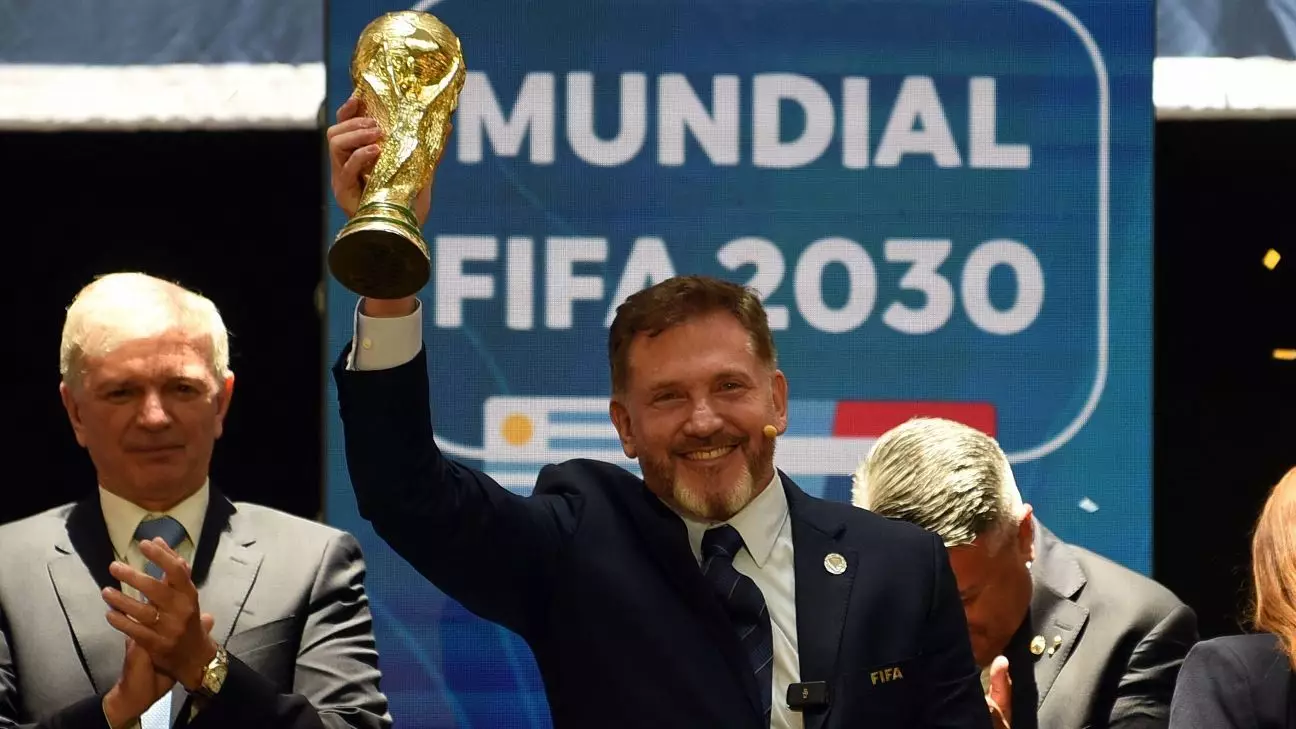In a stunning announcement that has captured the attention of the global soccer community, Alejandro Domínguez, the president of CONMEBOL, has put forward an audacious proposal: to expand the men’s 2030 World Cup from its current format of 32 teams to a staggering 64 teams. This ambitious plan aligns with the centennial celebration of the tournament, emphasizing a desire to mark the occasion with an unprecedented and inclusive spectacle. Domínguez articulated the vision during CONMEBOL’s 80th Ordinary Congress, asserting, “We are convinced that the centennial celebration will be unique because 100 years are celebrated only once.”
The significance of this proposal cannot be overstated. With six nations—Uruguay, Argentina, Paraguay, Spain, Portugal, and Morocco—serving as co-hosts across three continents, the 2030 World Cup is already on track to be the most expansive in history. The emotional gravity of hosting in Uruguay, the birthplace of the World Cup, adds layers of historical importance to the event. By doubling the number of participating teams, Domínguez aims to ensure every CONMEBOL member nation has a seat at the table, breaking the barrier for countries like Venezuela, which has yet to qualify for a World Cup.
The Stakes of Inclusion
While the proposal promotes inclusivity, it raises essential questions about the quality of competition. Critics, including UEFA president Aleksander Čeferin, have voiced concerns that expanding the tournament will dilute the competitive edge that traditionally defines the World Cup. There is a valid fear that letting in more teams could lead to lopsided matches and diminish the prestige of qualifying rounds, potentially resulting in a less engaging viewer experience. As the beautiful game is revered for its moments of sheer brilliance, any move that jeopardizes that quality warrants careful scrutiny.
Another critical consideration is logistics. The prospect of a 64-team tournament means doubling the number of matches to 128, a massive undertaking that would require meticulous planning and execution. Are the co-host nations prepared for this operational feat? The complexities involved—from scheduling and travel to accommodating fans—are immense and won’t come without challenges. For a tournament already punctuated by its grand scale, adding more nations into the mix may push some logistical boundaries, raising the risk of operational chaos.
The Power Play of FIFA
FIFA’s endorsement of CONMEBOL’s proposal will be pivotal. If they green-light the expansion, this could solidify FIFA’s strategy to expand its customer base and cash in on the economic potential of a larger tournament. The broadening of the tournament scope aims not only to engage more nations in the competition but also to attract larger audiences, thereby increasing revenue streams through advertising, ticket sales, and tourism. However, pursuing financial gain must be tempered by a commitment to preserving the sport’s integrity and ensuring that every nation can genuinely compete at the highest level.
Ultimately, the debate over a 64-team World Cup reflects more than mere numbers; it encapsulates the essence of football: a game that unites countries and cultures. While the bold proposal has elicited mixed reactions, it undeniably ignites a vital conversation about the future of global soccer. Expanding the World Cup may create an exhilarating environment for fans and players alike, but it also embodies the responsibility of ensuring that the soul of the game is safeguarded amid the changing tides of commercial interests. As we look ahead to this historic centennial celebration, the soccer world will be watching closely.

